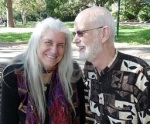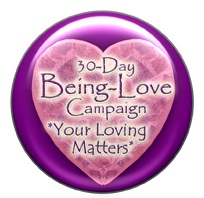People think they chose their ♡Beloveds because they are soft, gentle, loving…or maybe strong, dependable, intelligent….. playful, free-spirited, spontaneous….or generous, thoughtful, spiritual or perhaps good-looking, handsome, has a great body, sexy, gorgeous……..
You know all those noteworthy qualities we place at the head of our lists when we think about what to look for in our ideal partner.
But the part of our brain that comes up with all these wonderful qualities is unfortunately NOT the part of us that chooses our partners!
There is a hidden reason you picked your partner and a hidden agenda in love relationships.
Many theories of relationship include this idea.
Let me share with you a perspective or a way of looking at relationships that will significantly influence the way you see the world and all your relationships. It is a synthesis of many theories:
1. Relationships have an unconscious purpose which is to get the needs met that weren’t met as we were growing up.
2. Every living thing has embedded within it a “blueprint” for what it will become as an adult. For humans this blueprint involves accomplishing certain developmental tasks at specific stages during childhood.
All children go through STAGES OF DEVELOPMENT and the first four stages are the most formative. They are:
-
 1. ATTACHMENT where the primary job is for the baby to be attached and close and bonded to their parents/care-givers….where they feel emotional security and safety.
1. ATTACHMENT where the primary job is for the baby to be attached and close and bonded to their parents/care-givers….where they feel emotional security and safety.- 2. EXPLORATION when they start to move away and explore the world and learn it is OK to be separate knowing their parent is available and present when they come back.
- 3. The IDENTITY Stage is where the child ‘tries on’ all kinds of identities and ways of being and asserting who they uniquely are and the parent is supportive of their different choices.
- 4. The COMPETENCE Stage is where the focus is on learning how to do tasks and achieve things. Failing and being allowed to try again with the parent offering instructions and guidance and valuing achievement. The healthy outcome is a sense of personal power to achieve.
Everyone goes through these stages.
Since most people have had less-than-perfect childhoods and have been around less-than-perfect care-givers, most people have needs that were not met as they went through these various Stages and have developmental tasks that were not completely accomplished. This leads to what are called in popular psychology “childhood wounds” or ‘baggage’.
These “wounds” are simply needs that have not been met in childhood.
And these needs have not been met by their parents for many reasons, many of which are not conscious and intentional. Most parents do the best they can given the learning they have had, and are usually acting the way they do because of how their parents treated and taught them.
3. Another part of the relationship “blueprint” we have inside us is an image or a picture or a template of –
the way someone who loves and cares for us will treat us and the way we will respond to them and treat them.
This image is made up of both the positive and negative traits of the people who influenced us in our formative years. This is especially up till about six to seven years old.
From earliest childhood, our brains are actually formed and wired according to what is repeated in the environment around us. Whatever is reoccurring over and over and modeled to us becomes our perception of who we are and what we can expect from people in the world.
This is backed up by scientific research on the brain which shows that the neural pathways that are at the basis of our behaviour are formed in relation to the people that are significant to us as we are growing up.
Caretakers are most crucial in influencing and shaping the child’s developing self-image and world-image.
Whatever is fired over and over gets wired.
Our brain is in fact, “hard-wired” to sabotage our significant relationships by ‘creating’ in our lives the very things that we grew up not wanting!!
Question for you: What were the models of behaviour and ♡LOVE and caring that you were exposed to and influenced by as you were growing up? It is important to be curious about and to explore and be aware of this in yourself and your partner/’the other’.
4. So the result is unknowingly, we are drawn to and select partners who are like our parents/primary care-givers….. Partners who will have both the positive and the negative characteristics of the people who raised us. The image or template inside us is the basis that we unconsciously chose from.
Our unconscious has been programmed since we were born so that we are attracted to, and partner with, someone who has a synthesis of the characteristics that were around us as were growing up which can feel like our ‘worst nightmare’!!
5. The consequence is our partners will be UNSKILLED in helping us to get those important unmet needs met! Everyone brings that agenda to all their adult relationships.
6. And this unconscious agenda is why relationships can shift from the place of deepest ♡LOVE to total negativity and pain and unhappiness in the space of seconds. Your partner just “turned into” your father/brother/mother/uncle/other significant people……And you swore you would never chose a husband or wife or partner like that!!!…
And as well as their actions hurting and frustrating you and creating pain and unhappiness in the present, it reminds you of all the times you didn’t get your needs met and how hurt you felt in the past, whether you remember the link or not.
There is also an element of betrayal in times of conflict, as in the early Romantic Stage when we are ‘blind’ to the negative characteristics, we think we have finally found someone who is going to meet our needs and ♡LOVE us in the way we have always longed for.
The Nature of ♡Love
 “Most of the serious problems in relationships stem from the fact that people do not understand the true nature of love”, says Dr ♡Patricia Love in her highly recommended book “The Truth About Love”.
“Most of the serious problems in relationships stem from the fact that people do not understand the true nature of love”, says Dr ♡Patricia Love in her highly recommended book “The Truth About Love”.
She says that couples have many misconceptions and myths about the nature of ♡LOVE and these lead to destructive conclusions and that all relationships go through normal and predictable stages and that many couples mistake the lows for the end of ♡LOVE
Remember when you fell in ♡LOVE. It was like all your dreams had come true. Like you imagined it would last forever….♡……This is what we call The ROMANTIC /INFATUATION STAGE and it is the initial period in a relationship when people fall in ♡LOVE. It is the first and a crucial stage in the journey of creating Real ♡LOVE.
When you first meet and are developing your relationship you are in a chemically-driven space where you only experience your partner’s positive qualities. Yet this is not what ♡LOVE is really about. This Stage doesn’t last and it isn’t meant to.
You then move into the next stage we call THE POWER STRUGGLE. Arrrrgh!!
We wonder what we are going to do then as we feel we are living in our worst nightmare as all the negative qualities that we thought we had left behind are showing up. Your partner’s behaviour reminds you of the very things you wanted to get away from when you left home!
Is there one thing all people need to know?
7. People need to know what ♡LOVE is, and what ♡LOVE is not—that ♡LOVE is not sexual desire, not infatuation.
“It’s a misconception that love is a feeling and you either have it, or you don’t.
The fact is that ♡LOVE grows in response to getting your needs met”. ~ Dr ♡Patricia Love
Find out what your partner needs, what says “I ♡LOVE YOU” to your partner and give it as A GIFT.
Learn how to ♡LOVE your partner in the way they want to be loved. That’s really a key.
8. Your greatest growth and life changes and healing will come from S-T-R-E-T-C-H-I-N-G into doing the very things that will make your partner feel most ♡LOVED and cared for…. And paradoxically, these are the very behaviours that will be the hardest for you to do!!
“This is a revolutionary view of relationships: rather than leaving it to find yourself, you find yourself through it – being the right partner is more important than picking the right partner.” ~ Dr ♡Harville Hendrix
9. The partner that most matches what we got in the past is the person who is most able to help you to heal the wounds of your past. Your marriage/relationship becomes the therapy—you become healed not by a counsellor but by the relationship itself!
What really touches our heart is someone…
who is unskilled in and unable to give us what we want/and ask for,
being willing to learn how,
and to S-T-R-E-T-C-H into doing those things that are the hardest for them to do,
and give us what we never got.
This then re-creates or is a replica of the child-parent relationship where the child longed for the parent to change and be there for them and to meet their needs.
What does your partner ask you to do
that is important to them that you don’t do very well?
It might be listening, or talking or not talking, or spending time doing things together, or feeling, or touching, or cuddling, or laughing and playing, or speaking gently, or dancing, or valuing the way they do things, accepting them, or going on holidays instead of always working, or giving them your undivided attention, or being on time, or making love,…or a million and one things.
What does your partner ask you to do that you continually reject?
This again, believe it or not, is your greatest growth edge and opportunity for you to grow into being more of who you truly are. Giving your partner what is hardest to give is HEALING for them as you are meeting their needs, but it is also GROWTH for you as you have to S-T-R-E-T-C-H into doing new behaviours that weren’t OK for you to do as you were growing up. It will feel unfamiliar and uncomfortable. It won’t feel like “being you”.
And this process will be going on both ways. What do you need your partner to do that is important to you that they don’t do, or don’t do very well, and mostly will be continually ignoring and/or rejecting? It is often like they don’t even ‘see’ or understand or ‘get’ that we have these very needs.
 10. ♡LOVE is a DECISION. It is not just a feeling. It is a decision we make (or we don’t make) and we make it every day, every minute, in the way that we act/behave with one another.
10. ♡LOVE is a DECISION. It is not just a feeling. It is a decision we make (or we don’t make) and we make it every day, every minute, in the way that we act/behave with one another.
Motivational and management specialist ♡Stephen Covey was asked at one of his seminars by a participant:
“What do you do when you don’t feel like you love your wife anymore?”
He answered: “Go home and love her…”
And the guy said…”But I just told you I don’t love her anymore.”
He replied. “♡LOVE is a verb. It is something that you do.”
It sounds so simple and yet it’s so hard to change our behaviour.
We need to be kind to ourselves as change takes time and practice.
And it is good to start with baby steps and give yourself “L” Plates.
A reminder of the Chinese proverb: “A journey of a thousand miles begins with a single step”.
The more clear you can get about your history and ‘the baggage’ you bring with you the more connecting and intimate your relationships will become.
And by the way this doesn’t just apply to your primary ♡LOVE relationships – this process applies to all your relationships – your parenting, siblings, your boss, mother-in-law…
Don’t give up on finding and creating deep and meaningful relationships. Happily Ever After DOES happen! Know that applying these points and learning the Skills and ♡TOOLS that assist you to uncover and process and heal your unmet needs from childhood will lead you to manifesting your soul-mate and building life-long ♡LOVE and relationship success…..with the partner you already have, or for the singles, to attract ‘the partner of your dreams’.
I invite you to look at yourself and your life and relationships in this new way. Behaving in an intentional and consciously ♡LOVE-ing way toward your partner is the greatest opportunity you have to help heal unresolved pain and hurt (unmet needs) from your childhood as well as for your partner, and for both of you to become who you truly are.
Your ♥LOVE-ing Matters…
Your ♥LOVE-ing makes a difference
much more than you think…
Who is ‘My Perfect Partner’?
Please have a go at doing the EXERCISE below. It will throw some light on the Unconscious Agenda you bring to your adult relationships.
Happy exploring and discovering! Blessings and ♡LOVE allways, Susie.
Who is ‘My Perfect Partner’?
OPTION: Download printable version of Exercise – Who_is_my_perfect_partner?
SECTION 1
Complete Section 1 and then go to Section 2
Read the sentences below, filling in the blanks with the appropriate words by choosing from the lists of adjectives or add any of your own that are more appropriate.
A. Think of your childhood caretakers. List their negative qualities. (Pick at least 5)
For example: absent, abusive, addicted, aggressive, alcoholic, angry, boring, busy, cold, controlling, critical, dangerous, depressed, dishonest, distant, emotional, fragile, grumpy, immature, impatient, insensitive, intrusive, jealous, lazy, passive, passive aggressive, perfectionist, reactive, rigid, sarcastic, shallow, stingy, unaffectionate, unavailable, unforgiving, uninterested, unreliable, wounding…….others.
1. _______________
2. _______________
3. _______________
4. _______________
5. _______________
B. Think of frustrating times you had with them and list how you felt. (Pick at least 5)
For example: abandoned, afraid, alone, angry, anxious, ashamed, cheated, cold, depressed, disappointed, distant, embarrassed, frustrated, guilty, hopeless, hurt, inadequate, insecure, jealous, mistrustful, rejected, unloved…….
1. _______________
2. _______________
3. _______________
4. _______________
5. _______________
C. Now list their positive qualities. (Pick at least 5)
For example: accessible, affectionate, altruistic, attentive, available, confident, connected, courageous, creative, dependable, enthusiastic, fair, faithful, forgiving, hard-working, honest, open-minded, playful, respectful, responsible, safe, sincere, spiritual, spontaneous, supportive, talented, tender, tolerant, trustworthy, warm, wise…….
1. _______________
2. _______________
3. _______________
4. _______________
5. _______________
D. Think of the pleasant times you had with them & list how you felt. (Pick at least 5)
For example: close, excited, happy, loved, loving peaceful, playful, proud, reassured, respected, safe, satisfied, secure, trusted, warm……
1. _______________
2. _______________
3. _______________
4. _______________
5. _______________
E. List how you most often reacted as a child/teen to those frustrating times. (Pick at least 5)
For example: argued, became aggressive, became depressed, became low achieving, became passive, became passive-aggressive, became super-achieving, became rebellious, complained, criticized, distanced, drank, failed, got in fights, isolated, left, nagged, over-ate, slammed doors, slept, starved myself, stayed busy, talked to friends, threw/broke things, threw-up, used drugs, whined, withdrew yelled/screamed……..
1. _______________
2. _______________
3. _______________
4. _______________
5. _______________
SECTION 2:
Transfer your answers from above into the appropriate sections
My “Perfect” Partner
My Unconscious is trying to find a partner who is (Answers from question A)
1. _______________
2. _______________
3. _______________
4. _______________
5. _______________
With whom I often feel (Answers from question B)
1. _______________
2. _______________
3. _______________
4. _______________
5. _______________
But I’m only trying to get them to become (Answers from question C)
1. _______________
2. _______________
3. _______________
4. _______________
5. _______________
So that I can begin to feel (Answers from question D)
1. _______________
2. _______________
3. _______________
4. _______________
5. _______________
However, I have sometimes sabotaged getting my needs met because I (Answers from question E)
1. _______________
2. _______________
3. _______________
4. _______________
5. _______________
Do you find these statements to be mostly true of your current and/or previous partners with who you were in a committed relationship with for more than 6 months? Most people do!
[otw_is sidebar=otw-sidebar-1]

















